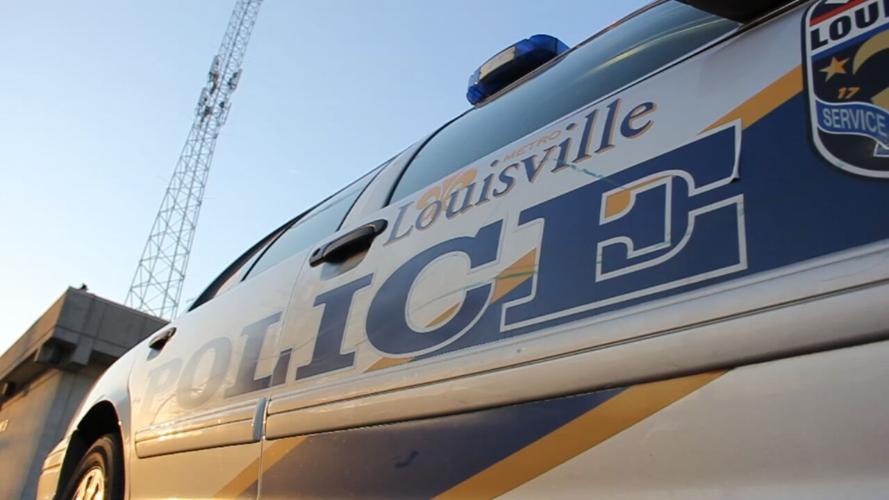LOUISVILLE, Ky. (WDRB) — Under President Donald Trump's previous administration, the U.S. Department of Justice once described consent decrees as “failed experiments” that “handcuff” local leaders and police departments.
Now, that so-called experiment is over — and the responsibility for reforming the Louisville Metro Police Department officially shifts to City Hall.
That means the weight of change is now on the shoulders of Mayor Craig Greenberg and the Louisville Metro Council.
Still, the term consent decree isn’t one many residents are familiar with. The original document from the DOJ is 248 pages long and filled with dense legal language.
“You’re gonna have good and bad in whatever,” west end resident Diann Johnson said.
Johnson admitted she wasn’t sure what the consent decree was — and said she’s had little interaction with LMPD over the years.
“Honestly, I don’t see police around here much," she said.
But for others, police presence — and misconduct — is all too real.
Heather Richards, for example, was one of several women to come forward accusing former LMPD officer Pablo Cano of rape.
Cano quit LMPD when the accusations came to light. He later took a plea deal in the case and was convicted of sexual misconduct against five women, as well as having child porn. He was sentenced to five years in prison.
Richards said she moved to California because of the rape, and how the case was handled by the police department.
"I don't think it's safe, and I'm not talking about general crime," she said. "I'm talking about I lived in fear of ever having to deal with LMPD again."
The city of Louisville paid out $275,000 to settle lawsuits in that case, which was explicitly referenced in the DOJ’s findings.
“Police aren’t often held accountable for their actions,” Richards said. “And despite the new mayor saying there’s going to be changes in oversight, they’ve got to walk the walk and talk the talk.”
Greenberg said his administration is ready to do just that.
“As promised, we are moving ahead rapidly to continue implementing police reform that ensures constitutional policing while providing transparency and accountability to the public,” Greenberg said.
He added that the department will still be subject to an independent monitor to make sure changes are followed through — even without a formal federal consent decree.
"We're embracing this opportunity," Greenberg said. "This opportunity to make LMPD one of the country's most respected and transparent police departments."
But some members of Metro Council — and the communities they serve — are still skeptical.
“They are dismayed. They are tired,” Councilwoman Shameka Parrish-Wright, D-3, said. “They feel like they are fighting something they can’t defeat … like the police are always in control.”
Parrish-Wright said now is the time for local leaders to prove they can do what the federal government could not — hold police accountable and build public trust.
“The police have been policing themselves the whole time,” she said. “They’ve been controlling the narrative. So who is going to be there to hold them accountable?”
She said she supports the roles of both the Office of Inspector General and the Government Oversight and Audit Committee — which has subpoena power. She also wants the independent monitor to report to that committee directly to ensure stronger checks and balances.
As for the actual reforms outlined in the original consent decree — city officials said Wednesday they’re still moving forward. Among the changes:
Revising use-of-force and training policies
Improving search warrant procedures
Ensuring traffic stops are conducted legally and fairly
Investigating police misconduct thoroughly
Addressing sexual harassment allegations within LMPD
LMPD Chief Paul Humphrey said his department is committed to making those changes happen regardless.
With the DOJ stepping back, Louisville leaders now face a new kind of test: whether meaningful police reform can happen without federal oversight.
The decree between Metro government and the Justice Department was reached in the final days of the Biden administration but needs court approval to progress.
However, some community members said they don't trust the city will carry out the needed police reforms.
"Unfortunately, I don't see this as a major change only because there's no federal oversight, there's no accountability," Pastor Tim Findley, social justice activist, said. "It's LMPD being accountable to LMPD and that's it."
Findley said he wasn't surprised when he heard about the DOJ seeking to dismiss its civil rights lawsuit against LMPD.
"I think all of us that have been paying attention saw the writing on the wall with the attack on DEI, with the attack on the DOJ," he said.
Now, he's concerned about the future.
"In a city that has really struggled with garnering trust from the community, what kind of real compliance is going to be enforced," he asked.
Greenberg said the city will move forward with its own "community commitment" of police reform, mirroring the accountability and transparency measures found in the prior police reform agreement. That includes better training, changes to search warrant applications and improved officer misconduct investigations.
"I've been very clear for over two years that we accept the findings of the original DOJ report and we're focused on moving forward into the future," Greenberg said.
Metro government didn't object to the DOJ's dismissal Wednesday, and said it would be delaying the inevitable. Greenberg expects a judge to grant the government's motion, but Findley said fighting back would have gained community trust.
"Although we know it would've meant nothing, it's those kind of things that demonstrate trust that the community wants to see," he said.
Humphrey, meanwhile, said he's confident in the changes his department has already made and the reforms still to come.
"We're creating a culture of improvement where everyone knows that you are expected to figure out ways to do your job better," he said.
But community trust remains strained.
"I love this city, but I don't necessarily trust Louisville Metro Government to adequately govern police misconduct," attorney Greg Simms said. "There's a pretty vast history of Louisville Metro not policing its police, and that is disturbing."
For some, like Findley, there's a lack of faith that this "community commitment" will make a difference.
"I don't think that this drastically improves LMPD," he said. "I think we continue the path that we've been on the past several years. It's only a matter of time until the next incident."
The city will hire an independent monitor to make sure police reform goals are met. Leaders said the community will have a chance to meet the finalists for that position during future meetings, which have not yet been set.
Related Stories:
DOJ seeks to dismiss lawsuit against Louisville police, effectively killing federal reform
Louisville urges federal judge to sign consent decree to monitor police reform deal
Louisville mayor says outside supervision of police reform deal is 'important' however judge rules
Copyright 2025 WDRB Media. All Rights Reserved.














